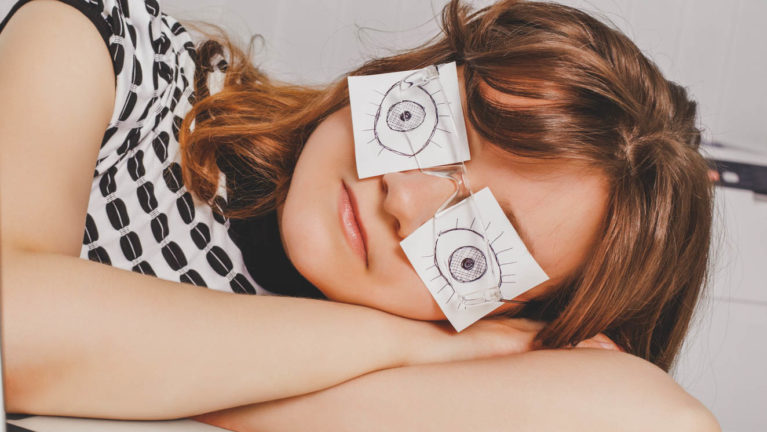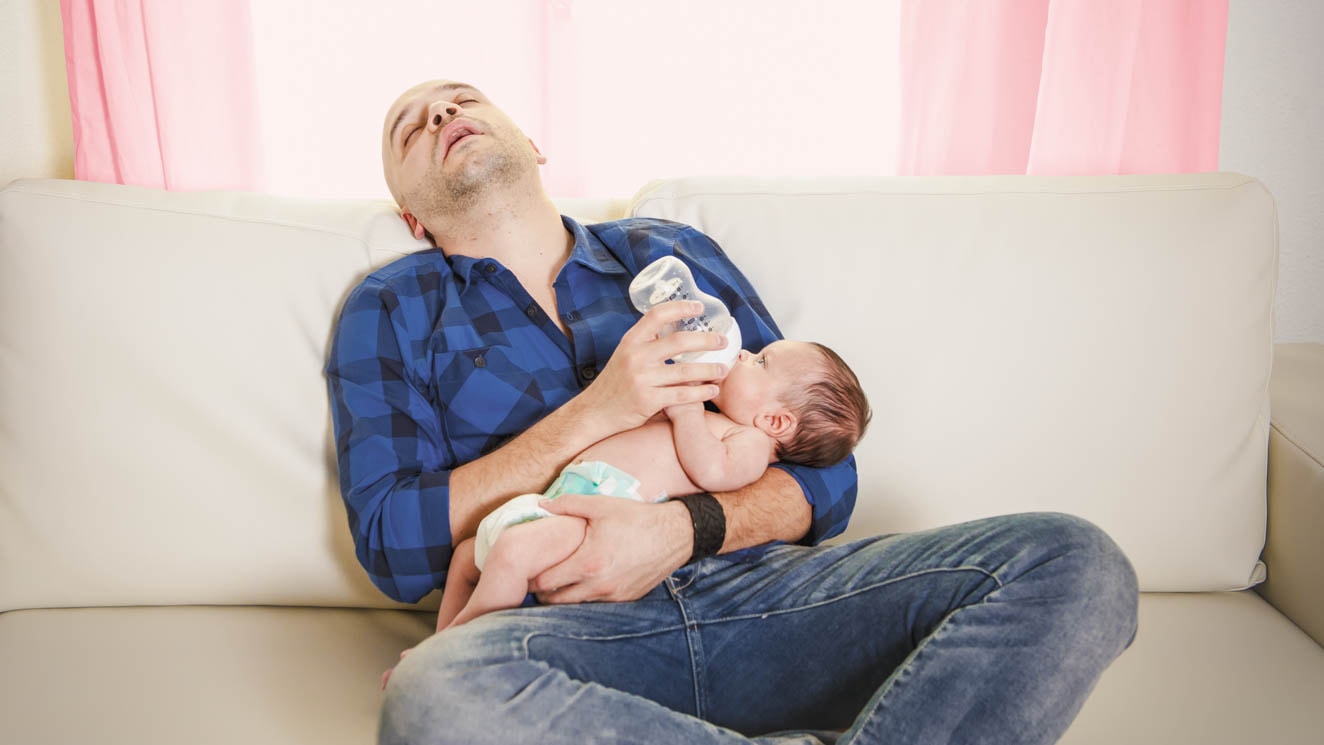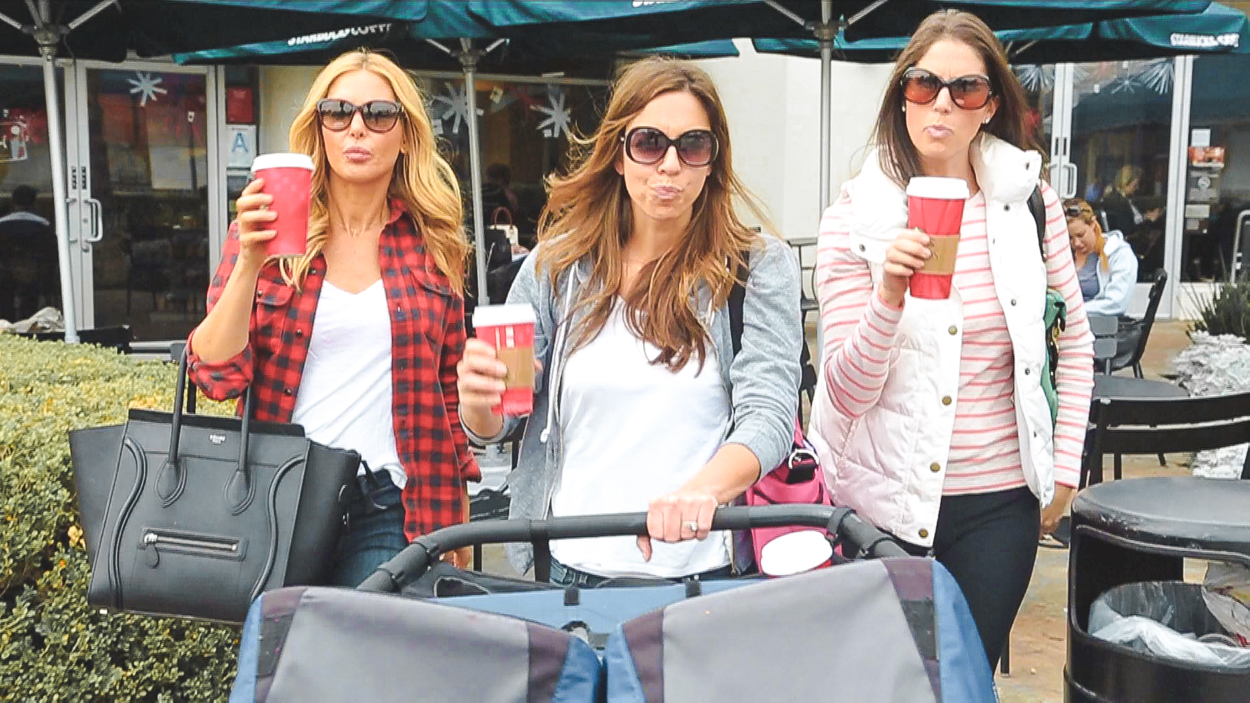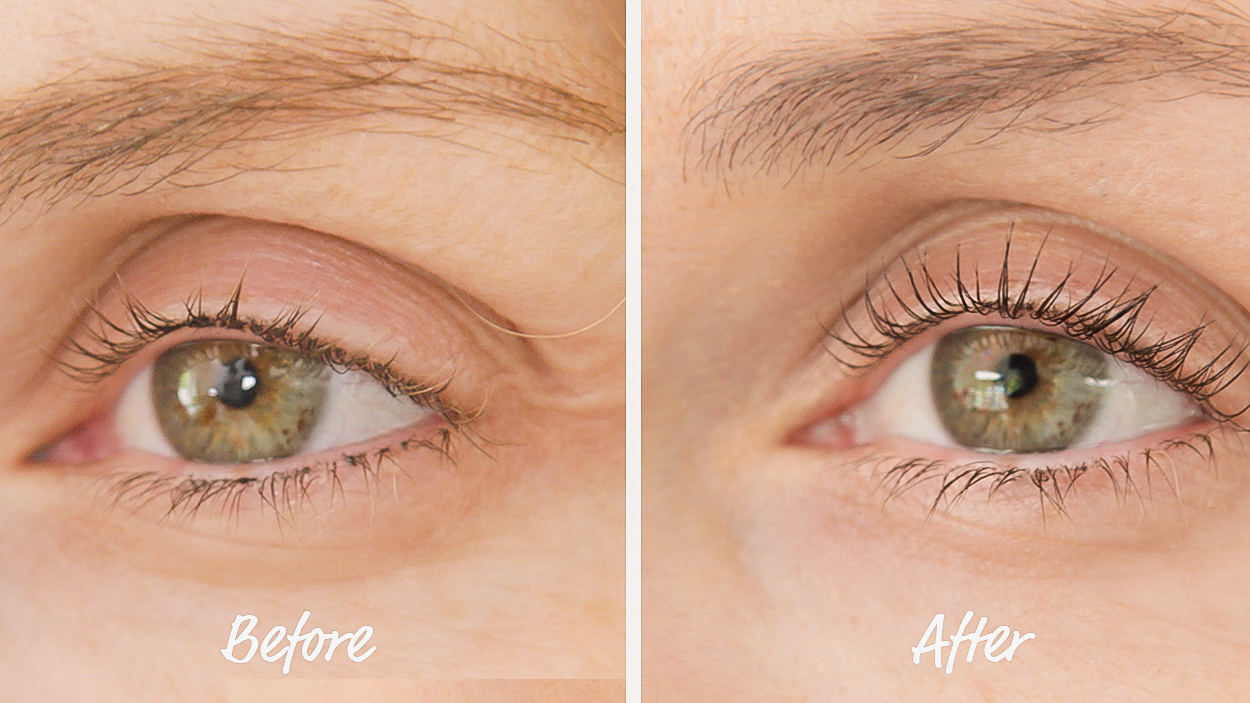

My son was maybe eight weeks old; I’d healed from the birth enough to begin running again, and one morning, craving a shot of endorphins, I took off for a gentle two-mile jog. I returned home to find my husband, dressed for work, holding the baby, ready for the hand-off. And I burst into tears.
“What’s wrong?” he asked, stricken.
I shook my head. “I don’t know!”
And then I realized: I was simply, completely and crushingly, exhausted. The day—another infinite day—loomed before me like Everest, and my sobs sprung forth before I could even register why I was crying. But cry I did. And that was before I realized my running pants were on inside-out.
It’s no wonder sleep deprivation is used as a form of torture — and it’s common knowledge that not getting enough zzzs is just not good.
Sleep medicine expert Katherine Sharkey, PhD lays it out: “Sleep deprivation is associated with negative consequences including mood problems, trouble with learning and memory, information processing difficulties, problems with weight gain and metabolism, heart disease, risk of car crashes and accidental injury.”
Gulp.
Trouble is, in early parenthood, sleep deprivation is pretty much inevitable. But there are ways to deal.
- Goodnight, Moon – Sharkey recommends protecting your regular bedtime like a mama bear does her cub. “Sometimes [you’ll] need to forego other activities or ask someone to help get the baby down, but it will pay off when [you’re] functioning better the next day,” she said.
- If you’re a night owl, you may have to train yourself to go to bed earlier. Give yourself a curfew by working in 15-minute increments each day, and actually set an alarm to remind you to turn in. Making sure to turn off all screens at least 30 minutes before bed, getting enough exercise during the day, and keeping your room cool also help a lot.
- Enlist Your Partner – If you have a husband who can help, take it! Give him that 11pm feeding (or some weekend night feedings) so you’re free to hit the hay earlier. Every hour counts. In those early days when the babe was nursing every two hours, having my husband take on some nighttime feedings was huge. I made sure to pump enough that we always had a stash of liquid gold in the freezer so he could give the baby a midnight snack (and have some extra bonding time) and I could get some bonus shut-eye.
- Get Out – It can seem like a major hassle to load up the stroller and head out with baby, but it’s worth it. Exposure to daylight is energizing, and just fifteen minutes in the sun will give you an infusion of Vitamin D, which can counteract many symptoms of exhaustion.
- Ingest Responsibly – Skip the supersized bowls of pasta in favor of smaller, more frequent meals; they’re easier to digest and will keep your energy levels (relatively) stable. And go easy on the coffee. As acupuncturist and herbalist Paul Kempisty explains it , “Too much too regularly can leave you feeling wired and overstimulated… and you can lose the ability to achieve good quality and restful sleep.” Instead, he suggests tea — green, black, white — as its effect is both stimulating and soothing, or chocolate, which has a “gentler and smoother energizing function.” Sound advice. But not gonna lie: one of my kid’s first phrases was “mommy coffee.”
- Hydrate – It’s just a fact: staying plied with fluids is hard to stay on top of when you’re thoroughly preoccupied with another person’s needs; it’s even harder when your fluids are being regularly drained thanks to breastfeeding. But dehydration causes sluggishness, making exhaustion exponentially more intense, so keep a bottle of water with you at all times, or stash bottles around the house so they’re always at arm’s reach.
- Just Breathe – Kempisty is an enthusiastic advocate of aromatherapy using essential oils such as lavender and geranium (to calm) and peppermint and lemon (to energize.) Diffuse the oils around the home, massage them into your hands and feet, or drop them into a hot bath to harness the benefits. He also recommends trying to squeeze in some kind of meditation practice—even just a couple minutes each day — with an app like Headspace. “It helps recharge energy, helps [parents] stay connected, and definitely helps with reducing the harmful effects of stress.”
- Practice self-compassion – Psychologist and mother to two young kids Suzanne Johnson, PhD, puts it best: “This is not a time to beat yourself up over anything,” she says. “House isn’t remotely clean? It’s okay. Can’t make intelligent conversation with colleagues, acquaintances, or other grown-ups? It’s okay. Don’t have the energy to have friends over who want to see the kid (but aren’t bringing dinner or planning to clean your house)? It’s okay. You are not failing. You are exhausted.”
And investing in a huge pot of concealer isn’t a bad idea, either.







